Retinoids, derived from vitamin A, treat acne and reduce aging signs. A 2019 study explored dermal aging mechanisms and anti-aging approaches1. These compounds increase cell turnover, boost collagen, and regulate sebum production.
In 2018, researchers examined the shift from studying skin aging to practical applications1. A 2019 study highlighted retinoids’ role in skin structure for cosmetic treatments1. They’re versatile, addressing acne, fine lines, wrinkles, and age spots.
Natural and synthetic retinoids improve aging treatment, especially for photoaged skin2. Tretinoin stands out as a potent retinoid for photoaging therapy2. In 2016, scientists explored topical retinoids’ mechanisms for treating photodamaged skin1.
Retinoids offer exciting possibilities for healthier, youthful-looking skin. They provide dual benefits for acne treatment and anti-aging. Let’s explore how to use these powerful ingredients for the best results.
Key Takeaways
- Retinoids, derived from vitamin A, can treat acne and reduce signs of aging.
- Retinoids work by increasing cell turnover, stimulating collagen production, and regulating sebum production.
- Various natural and synthetic retinoids have shown improvement in aging treatment, particularly in patients with photoaged skin.
- Tretinoin is considered one of the most potent and widely investigated retinoids for photoaging therapy.
- Incorporating retinoids into skincare routines can provide dual benefits for acne treatment and anti-aging.
Stay tuned for top reviews on beauty supplies. We cover acrylic nails, nail polish remover, and hair color kits. Find the best hair growth serum, skincare routine, and moisturizer for dry skin. Discover top vegan and cruelty-free makeup options.
Understanding Retinoids: How They Work for Acne and Aging Skin
Retinoids, vitamin A derivatives, revolutionized skincare in the 1970s3. These compounds treat acne, aging skin, and psoriasis3. They boost cell turnover and collagen production, resulting in clearer, smoother skin4.
The Science Behind Retinoids
Retinoids come in natural and synthetic forms. Synthetic ones are less irritating but may be less effective3. They’re available in strengths of 0.025%, 0.05%, and 0.1%3.
Tretinoin, a popular prescription retinoid, fades age spots and softens wrinkles. It stimulates collagen production and forms new blood vessels43.
Different Types of Retinoids and Their Strengths
Retinoids offer many options with unique benefits. Topical products include adapalene, alitretinoin, bexarotene, tazarotene, and tretinoin4. Tretinoin treats age spots and mature skin, while adapalene and tazarotene target acne43.
Over-the-counter retinoids like retinol and retinaldehyde are gentler. They’re good for sensitive skin or those new to vitamin A derivatives.
I’ve been using tretinoin for my age spots and fine lines, and I’m amazed at the results. My skin looks smoother, clearer, and more radiant than ever before. I highly recommend giving topical retinoids a try for anyone looking to turn back the clock on their skin.
Check back often for the best reviews on beauty supplies. We cover acrylic nails, nail polish remover, hair color kits, and more. Find top picks for skincare routines, moisturizers, and vegan beauty products.
Treating Acne with Retinoids: Mechanisms and Efficacy
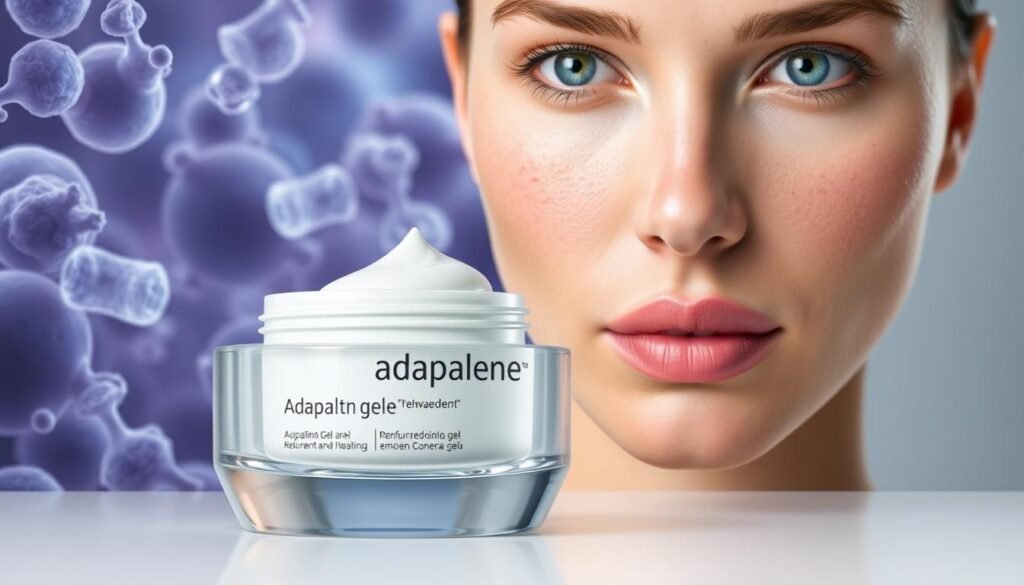
Retinoids are powerful vitamin A derivatives that effectively manage and prevent acne. Tretinoin, an FDA-approved topical treatment, clears severe acne breakouts. It not only treats active acne but also prevents future outbreaks with long-term use.
Acne vulgaris costs the U.S. $3 billion in healthcare and lost productivity. Surprisingly, 41.2% of dermatologists and 67.6% of non-dermatologists don’t prescribe retinoids for acne. However, dermatologists are twice as likely to prescribe retinoids compared to non-dermatologist physicians.
Retinoids’ Impact on Acne-Causing Factors
Retinoids target multiple acne-causing factors like abnormal cell growth and increased sebum production. They normalize cell turnover and reduce keratinocyte cohesiveness, preventing microcomedone formation. Tretinoin therapy has shown to reduce microcomedones by up to 80%.
Adapalene, a popular retinoid, improves acne scarring by boosting collagen production. Topical retinoids also effectively treat pigmentation issues associated with acne. Studies show improvements in both hyperpigmentation intensity and affected areas.
Clinical Studies Demonstrating Retinoids’ Effectiveness for Acne
Clinical studies prove retinoids’ efficacy in treating inflammatory and non-inflammatory acne. Tretinoin significantly reduces acne lesions over 12 weeks, especially when combined with benzoyl peroxide. Adapalene gel 0.3% outperforms 0.1% adapalene across all efficacy measures.
A 12-week trial compared tazarotene and adapalene gels. Both significantly decreased acne lesions, with adapalene reducing 61% compared to tazarotene’s 57%. The adapalene acne scar treatment 0.3%-benzoyl peroxide 2.5% combination shows efficacy in severe acne cases.
Randomized controlled trials have shown that topical retinoids significantly reduce both inflammatory and noninflammatory lesions in acne patients5.
Retinoid therapy may cause temporary skin irritation, peeling, and dryness. These side effects usually subside after a few weeks. Stronger tretinoin products are more effective but may cause more side effects.
Visit us for reviews on beauty supplies like eyebrow pencils, hair wax, and acne concealers. We also cover face toners, scrubs, organic shampoos, and argan oil for hair care.
Retinoids for Anti-Aging: Reducing Fine Lines, Wrinkles, and Age Spots
Retinoids, vitamin A derivatives, are powerful anti-aging tools. They fight acne and reduce fine lines, wrinkles, and large pores6. I’ve seen amazing results using retinoids in my skincare routine.
These compounds boost hyaluronic acid and collagen production in the skin. This leads to a smoother, more even-toned complexion6. Retinoids increase cell turnover, minimizing wrinkles and fine lines7.
How Retinoids Stimulate Collagen Production and Cell Turnover
There are six main types of retinoids for wrinkle treatment. These include Retinyl palmitate, Retinaldehyde, Retinol, Tretinoin, Tazarotene, and Adapalene6. Prescription retinoids are about 100 times stronger than over-the-counter retinol products8.
Long-Term Benefits of Retinoids for Aging Skin
Over-the-counter retinol serums take 3 to 6 months to show results. Prescription retinoids can improve skin in 6 to 8 weeks8. Tretinoin is very effective, with changes visible in two to three months7.
Long-term retinoid use greatly improves skin texture and tone. Regular use fights aging signs and maintains youthful skin. Try different options to find what works best for you.
Retinoids have been a game-changer in my anti-aging skincare routine. The visible reduction in fine lines and improved skin texture have given me a renewed sense of confidence in my appearance.
Start with low concentrations of retinoids and slowly increase strength. This helps avoid side effects like dryness and irritation6. Use a pea-sized amount of product daily8.
Always wear sunscreen and moisturize regularly. Retinoids can make your skin more sensitive to the sun7. Be patient and consistent for the best results.
Discover smoother, more radiant skin with retinoids. Try over-the-counter retinol serums or prescription treatments for amazing results. Stay committed to your skincare routine.
Visit us for reviews on hair color kits, growth serums, and skincare products. We cover moisturizers, cruelty-free makeup, and anti-aging creams too.
can a retinoid acne treatment be used for anti aging
Retinoid acne treatments offer a dual solution for skin concerns. They combat acne while promoting a youthful complexion. These versatile products can effectively address both issues simultaneously.
Retinoids work by penetrating deep into the skin’s dermis. They boost collagen and elastin production, essential for skin firmness. This process helps unclog pores, reduce breakouts, and minimize fine lines.
Several retinoid options are available for acne and anti-aging. Tretinoin, a prescription-strength retinoic acid, is potent and highly effective. It’s 20 times more powerful than over-the-counter retinol9.
For sensitive skin, gentler non-prescription retinol products are available. These typically come in concentrations of 0.5 to 1 percent10. They offer a milder approach to skincare.
I’ve personally seen a significant improvement in both my acne and the overall texture and tone of my skin since incorporating a retinoid into my nightly skincare routine. It’s like having my own little fountain of youth in a bottle!
Consistency is crucial when using retinoids for skin improvement. Optimal results typically appear after 12 weeks of nightly use11. Patience and regular application are key.
Retinoids can increase sun sensitivity, so take precautions. Limit sun exposure and use SPF 40 sunscreen daily10. Wear protective clothing when outdoors.
Retinoids offer a comprehensive solution for clearer, younger-looking skin. They target the root causes of both acne and aging. Results may vary, but the benefits are substantial.
For more beauty tips, check our reviews regularly. We cover cruelty-free makeup, anti-aging creams, and foundation for oily skin. You’ll also find info on top makeup brushes and beauty blenders.
Choosing the Right Retinoid Product for Your Skin Type and Concerns
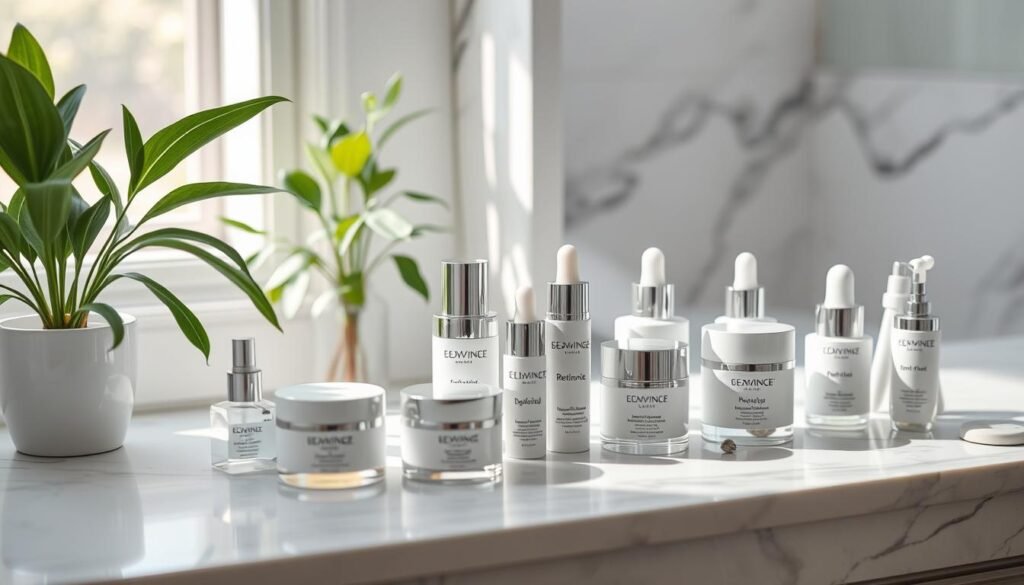
Retinoids come in various strengths and formulations. It’s crucial to pick the right product for your skin type and concerns. Research shows 0.1% retinol effectively improves aging signs and minimizes pore size12.
Over-the-Counter vs. Prescription Retinoids
Retinoids are available over-the-counter and by prescription. Tretinoin, Adapalene, and Retinol are the most common forms used in skincare13. The FDA approved Tretinoin in 1971 for topical acne treatment13.
Adapalene is more stable and less irritating than Tretinoin. It’s a good choice for sensitive skin13. Retinol is milder and effective on all skin types, with less risk of irritation13.
For sensitive skin, start with an over-the-counter retinol serum. Gradually transition to prescription-strength formulas. Medium-strength retinoids (0.2% to 0.4%) improve aging signs more quickly than lower concentrations12.
High-strength retinoids (0.5% to 1.0%) provide more dramatic results. They address deeper lines, wrinkles, and skin tone issues12.
Incorporating Retinoids into Your Skincare Routine
Ease retinoids into your routine gradually. Start with a pea-sized amount on clean, dry skin in the evening. Follow with a moisturizer to minimize potential irritation13.
Use a low-strength retinoid two-to-three times a week. Gradually increase usage based on your skin’s response12.
Potential Side Effects and How to Minimize Them
Common side effects include dryness, redness, and peeling. Use a gentle cleanser, moisturizer, and sunscreen during the day. Retinoids increase sun sensitivity, so always wear broad-spectrum sunscreen13.
Store retinoid products in opaque, airtight packaging to maintain effectiveness. Avoid products with fragrance that can irritate the skin12. If traditional retinoids don’t work, try Bakuchiol, a gentler plant-based alternative12.
Check back often for the best reviews on beauty supplies, including the best acrylic nails, best nail polish remover, best hair color kit, best hair growth serum, best moisturizer for dry skin, best vegan beauty products, best cruelty-free makeup, best anti-aging cream, best foundation for oily skin, best makeup brushes, and the best beauty blender.
Maximizing the Dual Benefits of Retinoids for Acne and Anti-Aging
Tretinoin, a vitamin A derivative, has transformed my skincare routine. It effectively treats acne by preventing clogged pores and regulating cell turnover. Tretinoin also boosts collagen production, improving skin texture and reducing hyperpigmentation14.
This versatile solution influences cell growth and differentiation. It addresses various skin concerns, making it a powerful tool for both acne and anti-aging15.
Combining Retinoids with Other Acne-Fighting Ingredients
To boost tretinoin’s benefits for acne-prone skin, I pair it with targeted ingredients. Benzoyl peroxide and salicylic acid help reduce inflammation and unclog pores. Introduce these gradually to avoid irritation.
Tretinoin can show results in acne treatment within six to eight weeks14. Combining it with complementary products can enhance its effectiveness.
Pairing Retinoids with Complementary Anti-Aging Products
Tretinoin is renowned for its anti-aging benefits. It accelerates cell turnover and targets keratinocytes, reducing fine lines, wrinkles, and age spots15. I add antioxidants like vitamin C and moisturizing agents like hyaluronic acid to my routine.
These ingredients protect the skin from environmental stressors. They also help maintain a healthy, hydrated complexion.
Visible results from tretinoin can be seen in two weeks. Full benefits accrue over time with consistent use15. Anti-aging benefits may take several weeks to one year to become apparent14.
I choose a matte, oil-free foundation for my tretinoin-based skincare routine. The best foundation for oily skin provides coverage without clogging pores. It shouldn’t worsen breakouts.
Selecting products that suit my skin type maximizes tretinoin’s benefits. This approach tackles both acne and anti-aging concerns effectively.
Check back often for the best reviews on beauty supplies. We cover acrylic nails, nail polish remover, hair growth serum, and moisturizer for dry skin. Find info on vegan beauty products, cruelty-free makeup, anti-aging cream, and makeup brushes. Don’t miss our takes on foundation for oily skin and beauty blenders.
Real-Life Success Stories: Transforming Skin with Retinoid Treatments
Retinoid treatments have transformed countless people’s skin. On Reddit, a woman shared her journey from acne-prone to glowing skin in two years. She used Tretinoin 0.025%, a prescription retinoid16.
Dermatologists confirm retinoids are crucial for acne treatment. They unclog pores, normalize skin cell turnover, and reduce inflammation. Retinoids also improve skin texture and restore skin from previous outbreaks16.
Adding retinoids to my best skincare routine has been a game-changer. Dr. Shereene Idriss says retinoids help with comedonal acne and stimulate collagen. This reduces fine lines and wrinkles17.
I started with a low percentage retinoid twice a week. Dr. Mona Gohara advised using a pea-sized amount across my face. I experienced some skin purging but knew it was normal17.
After four months, my fine lines reduced and my skin glowed. I always used SPF, even on non-retinol days. Retinoids can make skin UV sensitive17.
Retinol serums are now essential in my best skincare routine. They promote smoother, clearer, and more youthful-looking skin16. I’m excited to see the long-term benefits of retinoids.
Check back for reviews on beauty supplies. We cover the best skincare routine, nail polish remover, and hair growth serum. Also find the best moisturizer for dry skin and vegan beauty products. We review cruelty-free makeup, anti-aging cream, and the best beauty blender.
FAQ
Can a retinoid acne treatment be used for anti-aging purposes?
What are the different types of retinoids and their strengths?
How effective are retinoids in treating acne scars?
What are the long-term benefits of using retinoids for aging skin?
How should I incorporate retinoids into my skincare routine?
What is the best foundation for oily, acne-prone skin when using retinoids?
Source Links
- Use of Retinoids in Topical Antiaging Treatments: A Focused Review of Clinical Evidence for Conventional and Nanoformulations – https://www.ncbi.nlm.nih.gov/pmc/articles/PMC9618501/
- Retinoids in the treatment of skin aging: an overview of clinical efficacy and safety – https://www.ncbi.nlm.nih.gov/pmc/articles/PMC2699641/
- The Truth About Retinoids for Aging – https://www.webmd.com/beauty/ss/slideshow-retinoids-for-aging
- Retinol: Cream, Serum, What It Is, Benefits, How To Use – https://my.clevelandclinic.org/health/treatments/23293-retinol
- Why Topical Retinoids Are Mainstay of Therapy for Acne – Dermatology and Therapy – https://link.springer.com/article/10.1007/s13555-017-0185-2
- Curious About Retinoids for Wrinkles? Here’s Everything to Know. – https://www.healthline.com/health/beauty-skin-care/retinoids-for-wrinkles
- What You Need To Know About Retinoids – https://www.henryford.com/blog/2022/10/what-you-need-to-know-about-retinoids
- Retinoids for Wrinkles, Anti-Aging, Brown Spots – https://www.webmd.com/beauty/features/retinoids-for-aging-skin
- Tretinoin vs. retinol: Is tretinoin really much better? – https://miiskin.com/acne/medications/tretinoin-vs-retinol/
- Retinol vs. Retinoids: Which Should I Use? – Cornerstone Dermatology & Surgery Group – https://www.cornerstonedermatology.com/blog/retinol-vs-retinoids-which-should-i-use
- Why Your Retinoid Isn’t Working – https://www.libertywomenshealth.ca/post/why-your-retinoid-isn-t-working
- Your guide to retinol and retinoid strengths | Paula’s Choice – https://www.paulaschoice-eu.com/which-retinol-strength-should-i-use
- Types of Retinoids and How to Choose – https://www.pcaskin.com/blog/types-of-retinioids-and-how-to-choose
- Expert tips for using tretinoin in skincare | Curology – https://curology.com/blog/8-tips-for-using-tretinoin-in-skincare-treatment/
- What is Tretinoin used for? – https://synapse.patsnap.com/article/what-is-tretinoin-used-for
- This Woman’s Acne Completely Cleared Up Because of Retinol—Here’s Proof – https://www.byrdie.com/retinol-acne-transformation
- What It’s Really Like To Try Retinol For The First Time – https://intothegloss.com/2019/07/retinol-before-and-after/

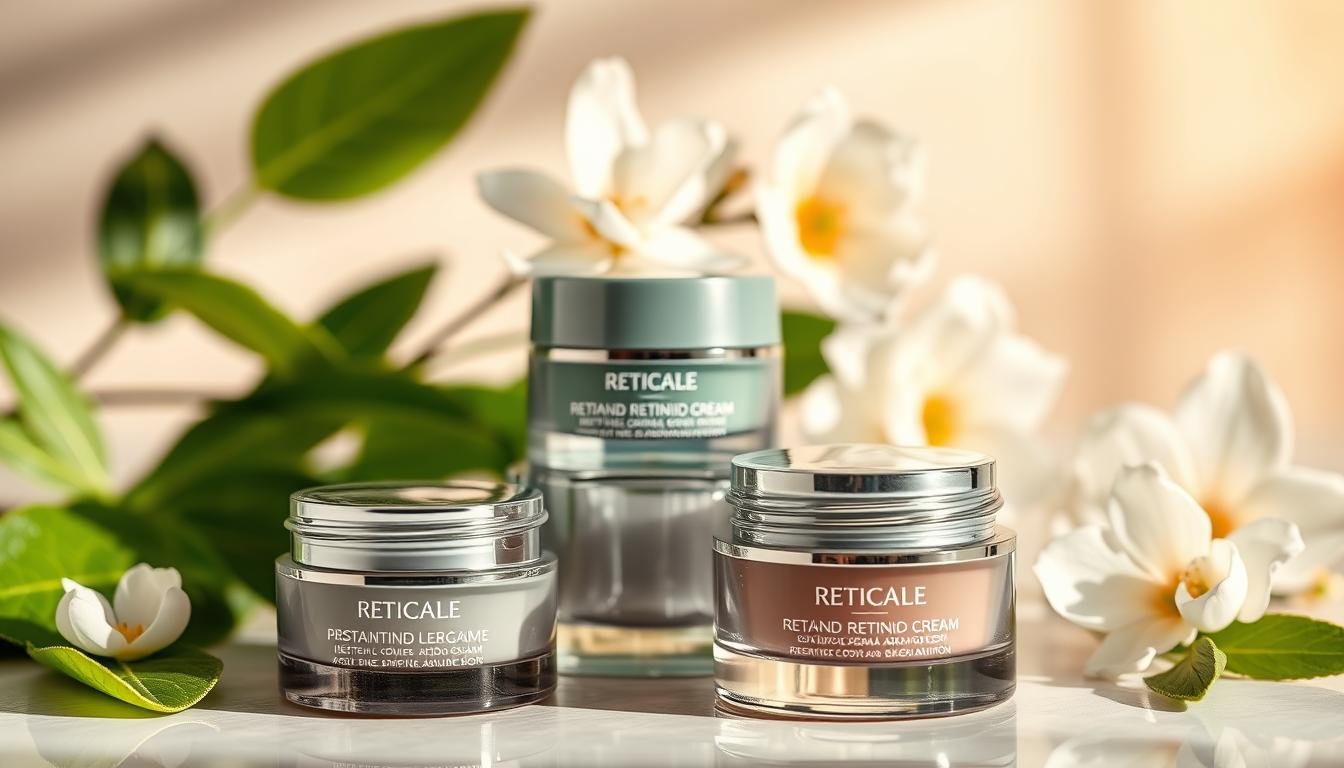
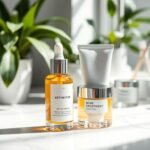
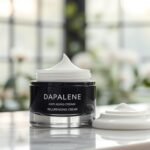
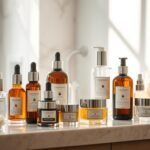
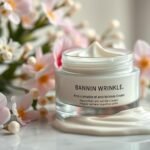
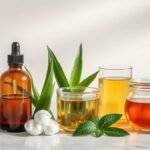
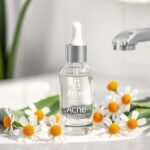
Anyone else think retinoids are overhyped? Arent there natural, less harsh alternatives for anti-aging and acne? Just food for thought, folks.
Retinoids are science-backed, unlike many natural alternatives. Evidence over hype, any day!
Interesting article, but arent retinoids too harsh on the skin? Might cause more harm than good in the long run, right?
Harsh or not, retinoids have proven benefits. Proper use is key, not fear-mongering.
Really think retinoids are overhyped. Are there any natural alternatives for anti-aging and acne? Not everyone can handle such harsh treatments. Thoughts?
Ever heard of Aloe Vera and tea tree oil? Natures best answer to retinoids.
Interesting read, but arent retinoids too harsh for sensitive skin? Could they cause more harm than good in the long run? Just a thought.
Interesting read, but isnt it strange how we use acne medicine for anti-aging? Isnt that just treating a symptom, not the cause?
Interesting read, but arent retinoids too harsh for sensitive skin? Didnt see this addressed. Any natural alternatives?
Interesting read, but arent there natural ways to fight acne and aging? Why are we so quick to turn to chemicals like retinoids?
Isnt it ironic we spend money on retinoids to fight aging, yet stress over acne ages us too? Just food for thought guys!
Interesting read but isnt it possible that overuse of retinoids could potentially thin the skin, accelerating aging instead? Just a thought!